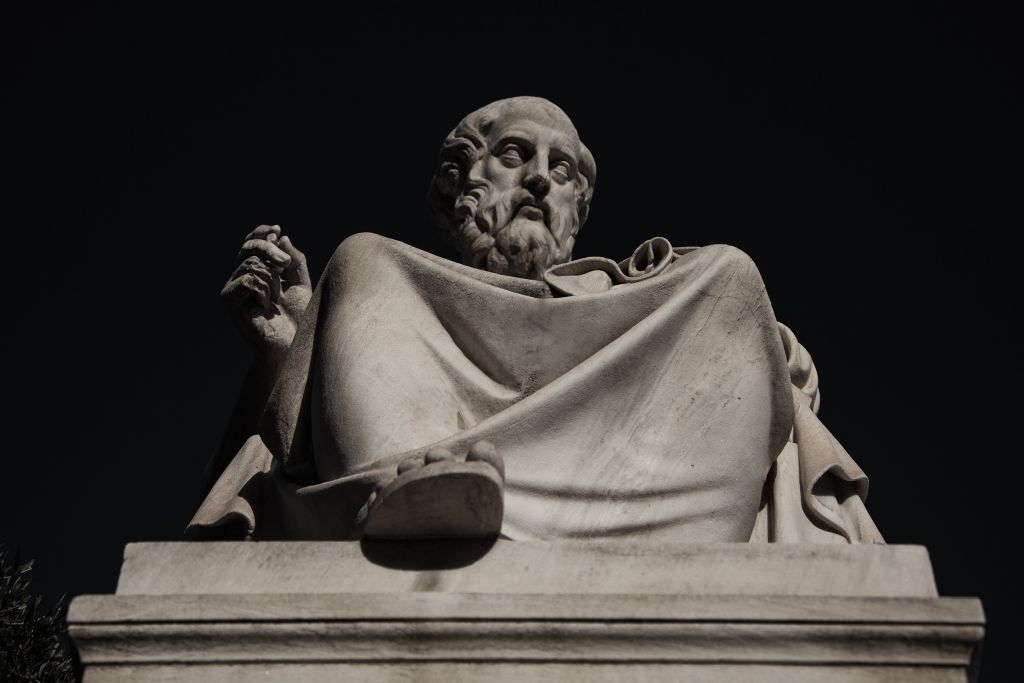‘AI’ opens up an old philosophical wound
WE SHOULD ALL know by now that so-called "artificial intelligence" confabulates - that is, makes stuff up when it should shut up. A recent example puts that in an interesting context - interesting, anyway, to those of us who sometimes wonder "what do we mean when we say we know this story is true?"

Plato did not, whatever they say, stick it away / half a crate of whiskey every day
An aeon ago in mid-January some on the political right in the UK tried to claim that Keir Starmer, a prime minister not as far right as them, had been insulted by Donald Trump, a president. "World leaders invited to Donald Trump inauguration including Milei as Starmer 'snubbed'" was one headline in the Express on 13 January. Another on the same day was "Donald Trump refuses to invite Keir Starmer to inauguration in major snub".
"But," members of the reality-based community riposted, "prime ministers do not go to US presidential inaugurations." The Express did note a week later, on the day of the ceremony, that "a fact-check by the PA news agency looked at the US State Department’s visiting log for presidential inauguration years since records began in 1874 and found that no foreign leaders were recorded as visiting a US President at the time of the ceremony. Diplomats and representatives tend to be sent instead." Trump had, uniquely, invited an odd selection of world leaders, a few of them odder than Argentinean president Javier Milei.
In the intervening week, of course, there had been a medium-sized storm of messages on antisocial media claiming that Starmer was finished by this. Many claimed, falsely, that Winston Churchill and David Cameron had attended inaugurations.
And so it came to pass that Grok, the "artificial intelligence" part of Twitter (currently trading as "X") responded to a question about this by declaring "Yes, a UK Prime Minister has attended a US President's inauguration. Notably, Prime Minister Winston Churchill attended the inauguration of President Franklin D Roosevelt in 1941..."
Grok, of course, sucks up Tweets to update its training for recent events. So in a sense its pronouncement was well-founded. It had correctly summarised the rubbish it had ingested. Its verdict was coherent with that. And it would get more so as others cited it on Twitter as a source.
The philosophers’ wrong
The "AI", in other words, had produced a perfect example of the "coherentist" positions in the philosophy of knowledge. (Yes, of course there are two entirely different types of coherentism in epistemology: that of justification and that of truth.) These were developed in part to get around the problem of realism: "if there were an objective reality independent of our perceptions, how could we tell?"
The problems get worse. Since Plato, philosophers' starting point in answering "what is knowledge?" has been "justified true belief". Justification is key: a true belief held by accident doesn't count as knowledge. And when we ask whether a justification is justified we so often disappear into an infinite regress.
Instead of looking for "foundations", coherentists consider statements true, or justified, if they are, er, coherent with a large number of relevant truth statements, or justifications. No foundation: more a sort of free-floating Sargasso Sea of reference.
Any sub-editor who has ever fact-checked in a hurry will recognise this approach: "Reuters says the company lost $666 million; so does Bloomberg; so does Nikkei; we'll go with that." The possibility always remains, of course, that they're all identically wrong. Perhaps two of them copied a typo by the third.
And that shows to my satisfaction that the coherentisms are wrong. They are, also, the only theories of knowledge available to the "large language model" flavour of "AI" that powers Grok, ChatGPT and so on - since a Sargasso Sea of reference is all it has to go on.
And if I am right, from that we can make an old-fashioned, watertight logical deduction about the worth of "AI" output.
 'Artificial Intelligence' our coverage to date
'Artificial Intelligence' our coverage to date
![[Freelance]](../gif/fl3H.png)